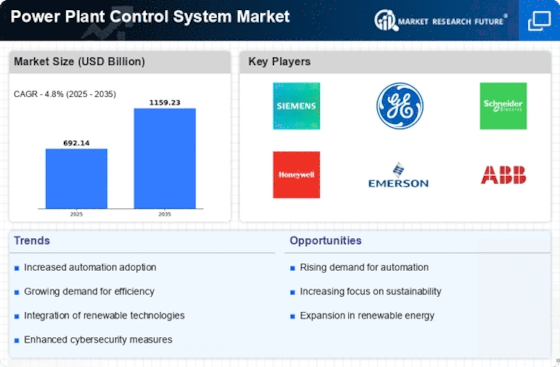Market Analysis
In-depth Analysis of Power Plant Control System Market Industry Landscape
The Power Plant Control System Market is witnessing dynamic changes driven by technological advancements, regulatory policies, and the growing global demand for energy. As the world shifts towards cleaner and more sustainable sources of power, the market dynamics of power plant control systems are evolving rapidly.
One significant factor influencing the market is the increasing focus on renewable energy sources. Governments worldwide are implementing stringent regulations to reduce carbon emissions and promote the use of clean energy. This has led to a surge in investments in renewable power generation technologies, such as solar, wind, and hydropower. As a result, power plant control systems are adapting to integrate and optimize the diverse nature of these renewable sources, creating a more complex and interconnected network.
The advancements in digitalization and automation technologies play a pivotal role in shaping the market dynamics. Power plant control systems are becoming more sophisticated, leveraging advanced sensors, data analytics, and machine learning algorithms to enhance efficiency, monitor equipment health, and predict potential failures. The integration of smart technologies allows for real-time monitoring and control, enabling operators to make informed decisions and optimize plant performance.
Furthermore, the power plant control system market is influenced by the increasing emphasis on grid modernization. As the demand for electricity continues to grow, there is a need for more robust and resilient power grids. Power plant control systems are evolving to support the integration of distributed energy resources, such as microgrids and energy storage, ensuring a reliable and stable power supply. The development of smart grids is driving the adoption of intelligent control systems that can efficiently manage the flow of electricity across the grid.
Global economic trends and geopolitical factors also contribute to the market dynamics. Economic growth, industrialization, and population expansion in emerging markets are driving the demand for power, leading to the construction of new power plants and the retrofitting of existing ones. On the other hand, geopolitical factors, such as energy security concerns and geopolitical tensions, can impact the investment climate and influence the adoption of power plant control systems globally.
The competitive landscape of the power plant control system market is shaped by the presence of key players offering a wide range of solutions. These companies are constantly innovating to stay ahead in the market, developing advanced control systems that meet the evolving needs of power plant operators. The market is characterized by collaborations and partnerships between control system providers and other stakeholders in the power generation ecosystem, fostering a holistic approach to address the challenges and opportunities in the industry.
The market dynamics of the power plant control system are undergoing significant changes driven by the transition to cleaner energy sources, technological advancements, and the need for grid modernization. The industry is adapting to meet the challenges posed by the evolving energy landscape, and the continuous innovation in control systems is essential to ensure efficient, reliable, and sustainable power generation. As the world strives for a more sustainable energy future, the power plant control system market will continue to play a crucial role in shaping the way we generate and manage electricity.


















Leave a Comment